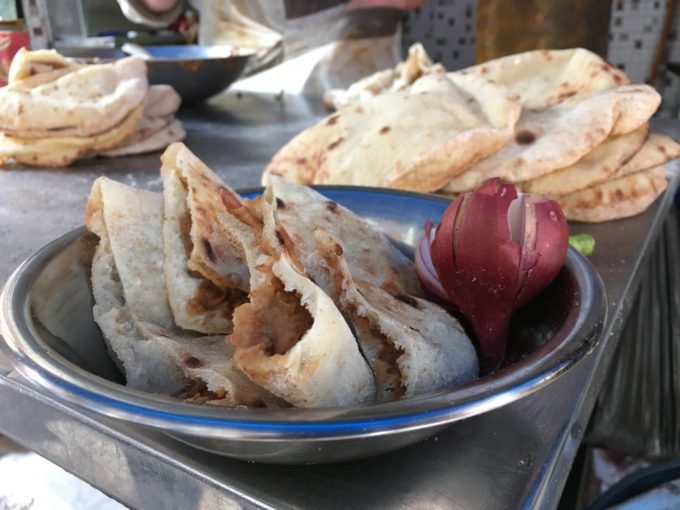
Everything You Ever Needed to Know About Mashed Fava Beans

Everything You Ever Needed to Know About Mashed Fava Beans
Ful medames in Cairo
It was mid-morning, and I was wandering the streets of Cairo, feeling peckish. I knew what I needed: some ful medames—slow-cooked, mashed fava beans.
Filling and ridiculously cheap, ful never fails to satisfy. Traditionally, ful is spooned from gently simmering, amphora-shaped vats called qidras into warm pockets of fresh, wholewheat flatbreads. Beyond a brief baptism of olive oil and lemon juice, standard ful condiments include a sprinkling of salt and cumin, perhaps some chopped hard-boiled egg, plus chopped veggies, such as onion, or, for the full eye-opening effect, some finely diced, green chili pepper.
I’d sampled ful at several Egyptian tourist hotel breakfast buffets. But this glutinous, over-processed stuff pales in comparison to the real thing, which includes some whole and half-mashed beans swimming around in the soulful mix, and can only be found on the streets.
A bit of research (and an obliging guide) helped me track down one of Cairo’s oldest and best ful stands, in the El-Ghoriyya section of town, run by Adel Fawzy.
“I have been here for more than 60 years,” Fawzy told me, stirring ful with one hand, and dishing it out with the other.
Fawzy’s stand isn’t hard to spot: head south along El-Moez street, through the historic heart of Islamic Cairo, and look for the rugby scrum of customers crowding the corner near Bab Zuweila gate, one of the city’s last remaining medieval gates, dating back to the 11th century. Back then, water for nearby Princess Baths, a public bath house, was heated in large qidras. The story goes that at the end of the day, to save resources, embers from the bathwater fires were stoked with trash to keep them burning, while more qidras were filled with fava beans to slow-cook overnight.
The legends jibe, somewhat, with the facts. Fava beans come in various sizes, but the only smaller, rounder ones which Egyptians call ful hammam (bath beans) qualify for making genuine ful. Medames, meanwhile, derives from a Coptic (ancient Egyptian) word meaning “buried,” reflecting the slow-cook method of burying the pots in embers and letting them simmer through the night.
Squeezing my way to the front of the line, I forked over ten Egyptian pounds (about 56 cents) for enough ful sandwiches to feed two. The taste was mellow, sharpened by the lemon juice and chili (I went for the full range of condiments). There was enough bite to the beans to let you know they were there, while the warm envelopes of bread kept the whole affair nice and tidy.
I’d scarfed down half the sandwiches by the time Fawzy turned back to me to tell me it took him two days to make the ful. Reaching for another helping, I told him it was worth the wait.